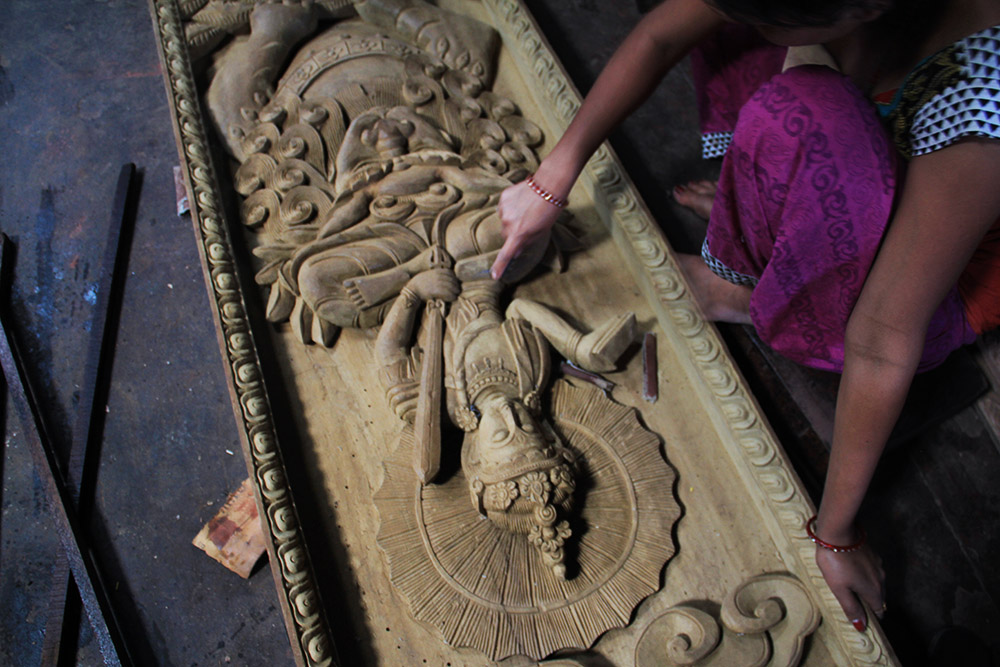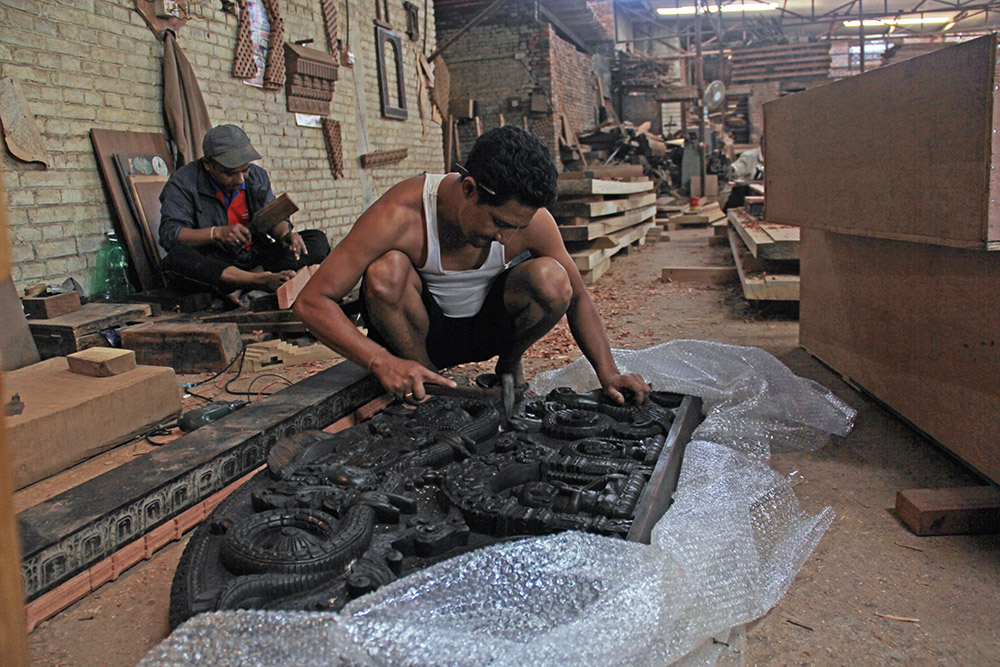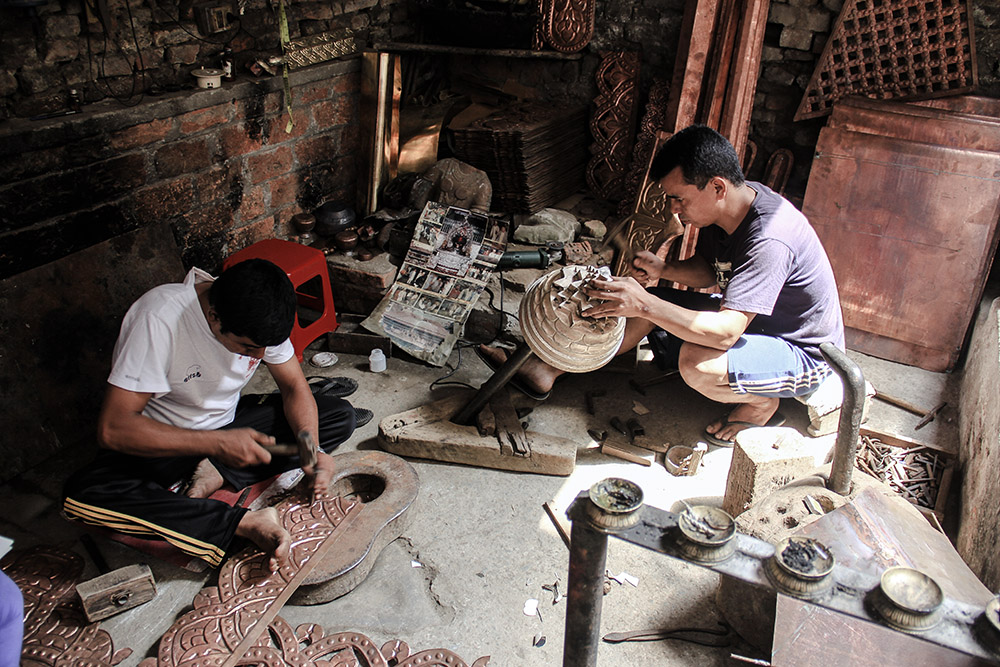



Date: Oct 01
Posted By: Traditional Comfort
Anyone who has visited the antique-adorned Dwarika’s Hotel near Pashupatinath in Kathmandu will have heard its origin story. Founder Dwarika Das Shrestha was out for a morning walk back in the 1950s and saw people burning carved, antique door and window frames on their fires. Concerned by this destruction of cultural heritage but realising that the mechanisms weren’t in place to save it, Dwarika made it his mission to save and promote traditional Nepali crafts from destruction and extinction. Thus the hotel was born, alongside a foundation to promote the work of traditional artisans.

Fortunately, nowadays you won’t find antique carving being burned as scrap. Quite the opposite. Traditional crafts, especially antiques, sell for high prices, and family-run handicraft businesses do a good trade. But this would not be the case without the support of contemporary projects. For example, the recently opened Hotel Traditional Comfort in Kamal Pokhari employed local craftspeople to design practically every detail of the interior and exterior furnishings.
Located in the Patan Industrial Estate, Purna Wood Carving Industries produced all of the wooden fixtures for Traditional Comfort. These include the intricate jhyal windows in the rooms and common areas, made to resemble the latticed windows of old palaces; the carved beams throughout the hotel; the dark wood beds with attached bedside tables; and the long benches fitted into each room.

Purna Wood Carving Industries is a family business, run by Purna Shilpakar. The Newari “Shilpakar” caste is known to be talented craftspeople, and their large workshop and showroom in Patan display the wide range of traditional and more modern woodwork that they produce. Space was full of everything from large religious carvings to simple cabinets to very detailed screens, of the type seen in Traditional Comfort.
All of the wood comes from Nepal, but stocks are limited because of Nepali laws intended to halt deforestation. Most of what the Shilpakar family—as well as the many other Patan-based woodworkers—use is antique and old wood. However, community forests have been established throughout the country, and the next generation of woodworkers is likely to benefit from the renewed supply. Fortunately, if local and international tastes continue to appreciate traditional Nepali styles, the skills passed down through the generations will continue to pass for much more.